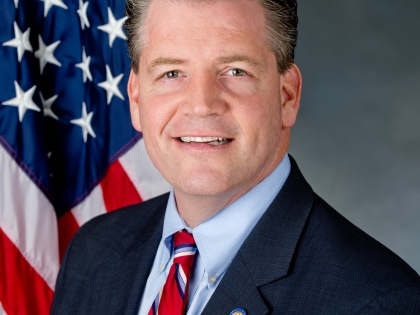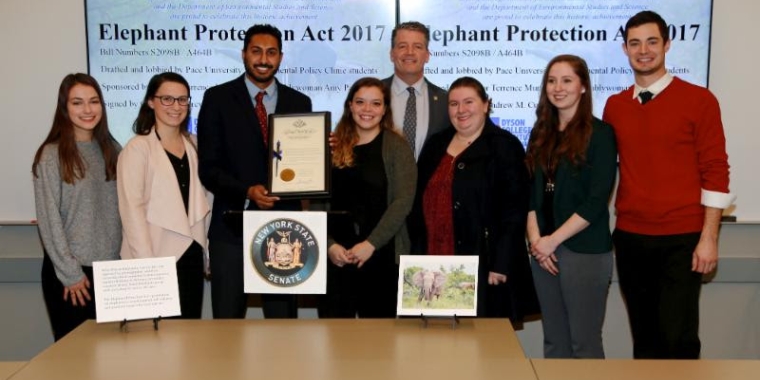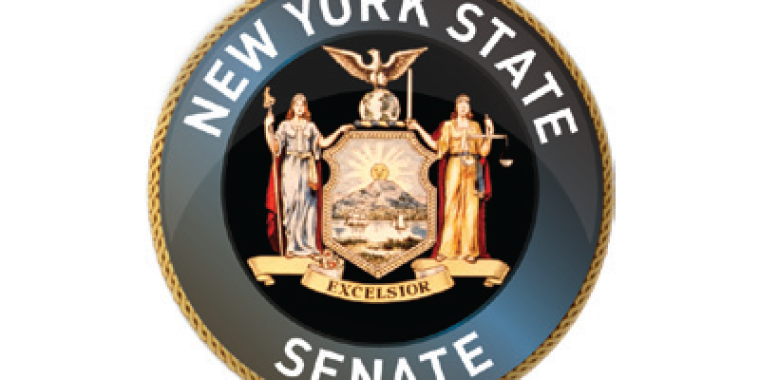
USACE To Finally Hold Hearing In Westchester About Storm Barrier Proposal And Impact On Hudson River
October 4, 2018

Albany, NY - When the United States Coast Guard announced an ill-conceived plan to establish 10 new anchorage sites for oil barges along the Hudson River, Senator Terrence Murphy led the charge that ultimately sank their proposal. When Entergy stunned the Hudson Valley with the news that they planned to close Indian Point by 2021, Senator Murphy led a bipartisan coalition of state, county, and local officials to secure $24 million in state funds to relieve the financial burden for residents in the area.
In early July, the United States Army Corps of Engineers (USACE) held a series of meetings to explore the impact of offshore barriers to protect the metropolitan region on storm surge flooding but failed to address sea level rise. They also neglected to hold any meetings in the Hudson Valley, despite it being the heart of the Hudson Valley Estuary. Senator Murphy made it his mission to see that the people most affected by the USACE's actions would have a voice.
On Wednesday, October 3, the USACE, the New York Department of Environmental Conservation, the New Jersey Department of Environmental Protection, and Westchester County Executive George Latimer will host two scoping meetings for the New York and New Jersey Harbor and Tributaries (NYNJHAT) Study. The meetings will be held at the Westchester County Center, 198 Central Avenue, in White Plains, with the first meeting from 3 p.m. - 5 p.m. and the second from 6 p.m. - 8 p.m. But many say more needs to be done.
"We've finally been recognized but I would not say we're sitting at the table yet. We were able to get the USACE's attention through determination, diligence, and a concerted effort by the public, government officials, environmental groups, and community organizations," said Senator Murphy. "But more needs to be done to improve the overall process. Tomorrow we have the opportunity to raise our voices and speak out against short-sighted decision making before the comment period closes on November 5th. I'm urging everyone to attend a meeting so we can listen, ask questions, and let our opinions and concerns be heard."
Jessica Roff, Director of Advocacy and Engagement for Riverkeeper said, "It's good that the Army Corps is listening to the massive public and elected outcry and first granted a comment period extension and now another public meeting. But these last minute extensions that come in fits and starts are not addressing the fundamental weakness in their process: a lack of transparency and information sharing and their severe lack of community engagement. The Army Corps needs to start this process over with truly meaningful engagement, and that engagement needs to extend from Long Island to Staten Island to New Jersey, Connecticut and throughout the Hudson Valley."
The USACE is considering six different plans for coastal storm protection, most of which call for construction of massive, in-water barriers in New York Harbor that would choke off the Hudson River Estuary where it meets the ocean. The barriers, resembling giant gates, would restrict tidal flow, blocking the migration of fish and trapping sediment, sewage, and other contaminants. The barriers would not protect against inevitable flooding from a rise in the sea level.
John Cronin, former Riverkeeper and senior fellow for Environmental Affairs at Pace University added, "The federal government has done little to protect and restore the Hudson, compared to other major estuaries. Instead, it has a long history of reckless proposals that would further damage the river. The latest Army Corps proposal is the worst I have seen in my 45 year career."
One plan under consideration calls for a surge barrier at the mouth of the harbor from Sandy Hook, New Jersey to Breezy Point in Queens. Alternative plans include multiple shorter barriers from Staten Island to Brooklyn and at various other locations blocking tributaries. The cost for the project has been estimated as high as $50-60 billion and could take decades to complete. Concerns have been raised that it could cause worse flooding in certain areas and harm nearby beaches. Environmentalists have raised concerns for many species that call the Atlantic Ocean home, including some that are on the endangered list.
In early July, the USACE held a series of meetings to explore the impact of offshore barriers and set the period for the public to comment at 40 days. Shockingly, hard-working families in the Hudson Valley, the ones most affected by the USACE's actions were left up the river without a paddle.
Senator Murphy joined with Senator Sue Serino and Senator Elaine Phillips to send a letter to Lieutenant General Todd Semonite of the USACE and Commissioner Basil Seggos of the New York State Department of Environmental Conservation urging the 40-day comment period be extended. With the deadline perilously close to an end, the USACE extended the comment period to September 20th - a major victory for Hudson Valley communities.
Share this Article or Press Release
Newsroom
Go to Newsroom
Senator Murphy honors Peekskill honor student
December 15, 2017


Senator Murphy comments on Child Victims Act
December 14, 2017
